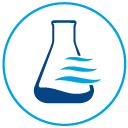
Standard Microbiological Testing Methods for Food and Beverages
What Is Microbiological Testing?
Microbiological testing is used to provide an analysis of fungi, mold, and bacteria, which may be present in a range of substances and materials. It also involves testing for allergens, pathogens, and for various contaminants, including common bacteria, such as E. Coli, and more. It can be used in food processing, as well as air, water, and soil testing, environment testing, and the testing of household materials. Microbiological testing methods help to determine the safety of a product to ensure it meets regulatory standards and can be distributed to customers.
Lab Testing Procedure in the Food and Beverage Industry
In the food and beverage industry, microbiological testing is an essential service. Unhealthy toxins and contaminants in food and drink can cause terrible health problems, which could even be fatal. All food and beverage manufacturers and sellers need to know that their products are safe for consumption. When it comes to food microbiology testing methods, it’s important to be aware of the challenges.
Food samples need to be diluted, usually at a ratio of 1:10, so that they can be tested as liquids. Before dilution, the sample is weighed. The liquid samples are put in Petri dishes to be incubated at specific temperatures. The samples can then be analyzed for different microscopic organisms.
What Are the Standard Methods Used in Microbiological Testing?
There is a range of standard methods used in a microbiological testing laboratory. There are the ISO TC 146 SC 4 standards that are used for measuring water quality and ISO TC 34 SC 9, as well as FDA best practices for microbiological methodology. When testing food and beverage samples, liquid samples are tested for pathogens. When more samples are used, it can provide a higher degree of accuracy, allowing samples to be compared to each other. When microbiological testing is required, there may be methods that are specified to get the desired results. If not, the lab can use Best Available Technology (BAT) methods that are accepted across the industry.
Why Is Microbiological Testing Necessary for the Food and Beverage Industry?
Microbiological testing is essential in the food and beverage industry to ensure the safety of products. Any company that produces food and beverage products has the responsibility to check that their products are safe and that they remain safe. Microbiology lab test types include tests that check for E. Coli, salmonella, legionella, and other common pathogens that can contaminate food and beverages. Contaminated food and beverage products could lead to food poisoning and other health problems, putting people in danger and causing legal trouble for the manufacturer and distributor. Microbiological testing is a must for these businesses, but also for regulatory organizations that ensure compliance.
Microbiological testing helps to keep the food and beverage industry safe and prevents dangerous pathogens from finding their way into the food chain. It is a vital part of the industry that protects people and businesses by ensuring safety at all times.






